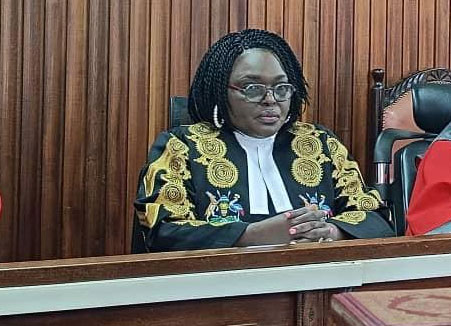
Kampala, Uganda | THE INDEPENDENT | The Court of Appeal has ruled that beneficiaries of a deceased person’s estate are free to sell their interests in land without seeking the consent of those with the letters of administration.
In a unanimous decision written by Justice Catherine Bamugemereire, the Court ruled that the administrators of a deceased person’s estate are nothing but custodians who cannot pass off as owners.
The Court ruled that, therefore, other beneficiaries are not duty-bound to seek consent of the administrators when they are disposing of their interests.
“This court is concerned that the administrator of an estate over-reaches his mandate, bullies, and takes advantage of vulnerable beneficiaries. From the record, it is clear that the estate of the deceased, although it was not distributed, guaranteed each member clarity about what portion of the land belongs to them… It is trite that though section 180 of the Succession Act grants the administrator powers to manage the estate of a deceased person including authorizing the beneficiaries thereof, it does make him a sole owner. The administrator only holds the land in trust,” the Bamugamereire’s judgment, together with Justice Muzamiru Kibeedi and Christopher Gahshirabake, reads in part.
This groundbreaking decision arose from an appeal filed by Dr. Diana Kanzira against Herbert Natukunda Rwanchwende and Robert Tukamuhabwa Rwanchwende. According to court records, Natukunda who was the sole administrator of the estate of their father Eric Rwanchwende instituted a case in the High Court in 2007 disputing a land transaction between Kanzira and his brother Tukamuhabwa.
In the suit, Natukunda claimed that his brother sold part of the land in Kashari without his consent as the registered owner of the land title and as the administrator of the estate of the late Rwanchwende. He also claimed that Tukamuhabwa was mentally incapable of entering into a binding contract by the time of selling the land.
The High Court ruled in favor of Natukunda ordering Kanzira to vacate the land that she had started using prompting her to appeal the decision.
In the judgment, Bamugemereire notes that Section 180 of the Succession Act did not envisage that the administrator would act like a private proprietor of the deceased’s estate and turn the said property into his own.
She said instead that the law envisages that at all times, the administrator acts on behalf of the beneficiaries.
“Where a family has decided to apportion and allot each member a part of the whole estate, it is envisaged that the beneficiary, aware of their rights and interests, may deal with the land as he or she wishes. However, the high-handed methods by which the late Eric Rwanchende’s estate is managed borders on illegality…any act contrary to what is expected of the administrator under the letters of administration cannot be disregarded or departed from under the guise of minutes of a family meeting. The majority cannot agree to oust the law,” Bamugemereire said.
The judge added that although the law prohibits transactions on the property of the dead without the grant of letters of administration, this does not in any way entitle the administrator to the legal power to vitiate the rights of the beneficiaries of an estate.
In his consenting decision, Justice Kibeedi held that a beneficiary has the legal capacity to validly dispose of his/her beneficial interest without the notice or prior consent or authorization by the holder of letters of administration.“After a close review of the evidence on both sides, I am satisfied, on a balance of probabilities, that at the time of selling of the suit land to the appellant by the 2nd respondent, his share out of the mainland had already been defined through mutual agreement within the family, given to him and he was using it exclusively.”
“The different portions were definite and separate on the ground, and the 2nd respondent had taken a step further by engaging a surveyor to subdivide his portion from the rest of the mainland in order to pave the way for him to obtain a separate title. The land sold by the 2nd respondent to the appellant was out of his designated share,” Kibeedi’s consenting agreement reads in part.
Bamugemereire held that the judge erred in finding that there was no contract entered. “I find that that the appellant has on the balance of probabilities, proved that she entered into a contract for seII of land. I declare that the appellant entered into a contract for the sale of land with both respondents, and the contract is enforceable as against the Respondents,” the judge held.
****
URN
 The Independent Uganda: You get the Truth we Pay the Price
The Independent Uganda: You get the Truth we Pay the Price





